
Fish and Shellfish Immunology Reports
Scope & Guideline
Unveiling the secrets of aquatic organism defenses.
Introduction
Aims and Scopes
- Aquatic Immunology:
The journal emphasizes research on the immune systems of fish and shellfish, exploring how these organisms respond to pathogens, stress, and environmental changes. - Pathogen Interaction Studies:
Research frequently investigates the interactions between aquatic animals and pathogens, including viruses, bacteria, and parasites, to understand disease mechanisms and resistance. - Nutritional Immunology:
The impact of dietary supplements and probiotics on the immune health of aquatic species is a core area, focusing on how nutrition can enhance disease resistance. - Molecular and Cellular Immunology:
Studies often delve into the molecular mechanisms of immune responses, including gene expression, protein interactions, and cellular behavior under stress or infection. - Environmental Stress Responses:
Research covers how environmental factors, such as temperature and salinity, affect the immune responses of aquatic species, contributing to knowledge on climate change impacts.
Trending and Emerging
- Microbiome and Host Interactions:
Recent studies increasingly focus on the role of the microbiome in shaping the immune responses of aquatic species, highlighting the importance of host-microbiome interactions in health and disease. - Immunogenetics and Genomic Approaches:
There is a growing trend towards employing genomic and transcriptomic methodologies to understand the genetic basis of immune responses, facilitating more targeted breeding and management strategies. - Stress-Induced Immunity Research:
Research on how various stressors, including environmental changes and pathogen exposure, affect immune function is on the rise, reflecting a broader interest in the resilience of aquatic species. - Innovative Immunostimulants:
Emerging studies are focusing on the development and application of novel immunostimulants, such as probiotics and dietary additives, to enhance the immune responses of farmed aquatic species. - Nanotechnology Applications:
The use of nanomaterials in enhancing disease resistance and immune responses in aquatic animals is gaining traction, indicating a trend towards integrating advanced technologies in immunological research.
Declining or Waning
- Traditional Vaccination Approaches:
Research on conventional vaccination methods for aquaculture species appears to be declining, possibly due to the increasing focus on novel immunostimulants and genetic approaches to disease resistance. - Generic Antimicrobial Studies:
There seems to be a waning interest in broad-spectrum antimicrobial studies. Instead, more specific interactions and mechanisms are being explored, leading to a decrease in general antimicrobial research. - Invasive Species Impact Studies:
The exploration of immune responses in the context of invasive species has diminished, suggesting a shift toward more direct applications in aquaculture health management.
Similar Journals
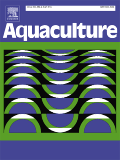
AQUACULTURE
Fostering collaboration in aquatic science and sustainability.AQUACULTURE is a premier academic journal dedicated to the field of aquatic science, published by Elsevier. With a robust Impact Factor, the journal is renowned for its significant contributions to aquatic biology and the sustainable development of aquaculture practices. Since its inception in 1972, AQUACULTURE has established itself as an essential resource for researchers and professionals in the industry, regularly ranked in the Q1 category of aquatic science journals and positioned in the 14th percentile of its field according to Scopus rankings. Covering a wide array of topics including fish biology, aquaculture technology, sustainable practices, and environmental impacts, AQUACULTURE aims to disseminate innovative research findings that drive the industry forward. The journal, accessible to a global audience from its base in the Netherlands, continues to foster collaboration, discussion, and application of research to both academic and practical realms within aquaculture. Researchers and students alike will find valuable insights and current trends in this highly respected publication.

FISH PHYSIOLOGY AND BIOCHEMISTRY
Advancing Understanding of Fish PhysiologyFISH PHYSIOLOGY AND BIOCHEMISTRY, published by Springer, is a leading journal in the fields of aquatic science, biochemistry, and physiology, with an impressive trajectory since its inception in 1986 and continuing through 2024. Operating from the Netherlands, this journal serves as a vital platform for researchers, professionals, and students alike, showcasing innovative studies that explore the physiological and biochemical aspects of fish, contributing significantly to our understanding of aquatic ecosystems and their inhabitants. With a robust impact factor reflected in its Q1 status in Aquatic Science and notable rankings in other relevant categories, FISH PHYSIOLOGY AND BIOCHEMISTRY maintains a strong scholarly influence, evidenced by its Scopus ranking within the top quartiles of various biological sciences disciplines. While the journal does not currently offer open access options, it remains a cornerstone for advancing knowledge and fostering collaboration within the community dedicated to aquatic biology and related fields.
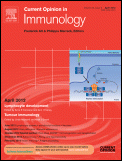
CURRENT OPINION IN IMMUNOLOGY
Shaping the Future of Immune ScienceCURRENT OPINION IN IMMUNOLOGY is a prestigious journal dedicated to the dynamic field of immunology, published by CURRENT BIOLOGY LTD in the United Kingdom. With an ISSN of 0952-7915 and an E-ISSN of 1879-0372, this journal has been a cornerstone of scholarly communication since its inception in 1988 and continues to disseminate cutting-edge research and reviews aimed at advancing our understanding of immune responses. Holding a remarkable Q1 ranking in both Immunology and Allergy categories for 2023, it ranks impressively within the top percentiles in its field, securing 27th233 in Immunology and Allergy and 31st out of 236 in Immunology and Microbiology. Emphasizing high-impact research, the journal provides researchers, professionals, and students with valuable insights into emerging trends and critical developments. As a vital resource in immunological research, it serves as a platform for disseminating innovative findings, fostering collaboration, and enhancing scholarly exchange in a rapidly evolving scientific landscape.

BMC IMMUNOLOGY
Bridging Gaps in Immune System UnderstandingBMC Immunology is a prominent open-access journal published by BMC that has been at the forefront of immunological research since its inception in 2000. Based in the United Kingdom, this journal aims to advance the understanding of immune system functions and disorders through high-quality, peer-reviewed articles. With an impressive scope encompassing various facets of immunology, BMC Immunology has earned a Q3 ranking in the Immunology category according to the 2023 category quartiles, demonstrating its growing impact and relevance in the scientific community. Researchers and professionals will find valuable insights in its array of published works, spanning both foundational studies and innovative applications. The journal's commitment to open access ensures that cutting-edge research is freely available, fostering collaboration and advancement in the field. For those looking to stay updated on the latest developments in immunology, BMC Immunology stands as an essential resource for researchers, professionals, and students alike.

FISH PATHOLOGY
Connecting researchers to combat fish diseases effectively.FISH PATHOLOGY is a vital journal dedicated to the field of aquatic animal health, published by the Japan Society of Fish Pathology. With a strong publication history dating back to 1967, this interdisciplinary journal aims to promote high-quality research focusing on the pathologies affecting fish and other aquatic organisms. Despite its category quartiles ranking of Q3 in both Animal Science and Zoology and Aquatic Science, the journal maintains a growing presence within the scientific community, holding a respectable position in Scopus rankings. Researchers and professionals looking for deep insights into fish health management and disease pathology will find FISH PATHOLOGY to be an invaluable resource for advancing knowledge and fostering collaboration in this essential area of study. Although the journal does not currently offer open access, its comprehensive analyses and findings are crucial for both academic and practical applications in fisheries and aquaculture worldwide.
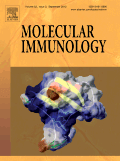
MOLECULAR IMMUNOLOGY
Pioneering Insights into Molecular ImmunologyMOLECULAR IMMUNOLOGY, published by Pergamon-Elsevier Science Ltd in the United Kingdom, is a highly regarded journal in the fields of Immunology and Molecular Biology. With a focus on advancing the understanding of the immune system at the molecular level, the journal has been a critical resource since its inception in 1975. The journal is currently listed in the second quartile (Q2) of its category as per the 2023 rankings, indicating its substantial impact in both Immunology and Molecular Biology research. Researchers and professionals benefit from the journal's rigorous peer-review process and its commitment to publishing high-quality original research, reviews, and methodological studies that explore the intricate dynamics of immune responses. Although it does not currently offer an open access option, MOLECULAR IMMUNOLOGY remains an essential platform for scholars, emphasizing the significance of molecular interactions within the immune system and their implications in health and disease.
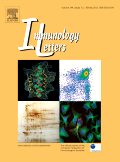
IMMUNOLOGY LETTERS
Bridging the Gap Between Immunology and Clinical PracticeIMMUOLOGY LETTERS, published by Elsevier, is a distinguished journal in the field of immunology, focusing on the latest advancements and findings that significantly influence immunological research and clinical applications. Established in 1979, the journal has evolved to cater to a global readership, featuring high-quality peer-reviewed articles across a diverse spectrum of topics related to immunity and allergic responses. With an impressive Q2 category ranking in both Immunology and Allergy as of 2023, it holds a strong position within the scientific community, evidenced by its commendable Scopus rankings (Rank #71/233 in Medicine - Immunology and Allergy and Rank #85/236 in Immunology and Microbiology - Immunology). While primarily subscription-based, the journal aims to foster knowledge dissemination that encourages collaboration among researchers and practitioners alike, making significant contributions to the understanding of immune mechanisms. The journal is integral for educators, students, and professionals aiming to stay abreast of current trends and breakthroughs in the immune system's intricate functions.
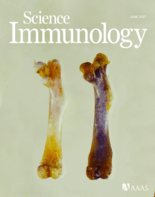
Science Immunology
Pioneering Insights in Immunology and HealthScience Immunology, published by the American Association for the Advancement of Science, is a leading journal in the field of immunology, recognized for its significant impact and rigor in advancing our understanding of immune responses and complex diseases. With an impressive impact factor that places it in the Q1 category of both immunology and allergy, as well as miscellaneous medicine, this journal is ranked #7 and #8 in their respective Scopus categories, reflecting its high-quality research output. Since its inception in 2016, Science Immunology has been at the forefront of interdisciplinary immunological research, fostering crucial insights that link immunology with pressing health challenges. The journal is committed to providing open access to its content, ensuring that groundbreaking findings are accessible to a global audience of researchers, professionals, and students. Its anthology not only addresses fundamental immunological mechanisms but also enhances the dialogue on translational applications and therapeutic interventions, solidifying its position as an essential resource within the scientific community.
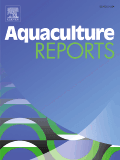
Aquaculture Reports
Exploring Innovative Solutions in Aquatic ScienceAquaculture Reports, published by Elsevier, is a prominent open-access journal dedicated to advancing knowledge in the fields of aquaculture, aquatic science, and animal science. Since its inception in 2015, this journal has quickly established itself as a leading platform for high-quality research, achieving a remarkable Q1 ranking in both Animal Science and Zoology and Aquatic Science as of 2023. With a Scopus ranking placing it in the top 7% of journals in Agricultural and Biological Sciences, Aquaculture Reports serves as an essential resource for researchers, professionals, and students alike, facilitating the exchange of innovative ideas and cutting-edge findings. The journal is indexed under ISSN 2352-5134 and is committed to fostering open access, ensuring that the latest research is readily available to the global scientific community. As it converges its years of publication from 2015 to 2024, Aquaculture Reports continues to shape the future of aquaculture research through rigorous peer-reviewed articles and impactful studies.
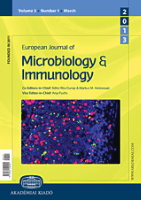
European Journal of Microbiology and Immunology
Catalyzing Collaboration in Medical ScienceWelcome to the European Journal of Microbiology and Immunology, a premier platform dedicated to advancing the field of microbiology and immunology through the dissemination of high-quality research. Published by AKADEMIAI KIADO ZRT in Hungary, this journal serves as an essential resource for researchers, professionals, and students alike, fostering scholarly communication and innovation in these critical areas of medical science. The journal, which holds an ISSN of 2062-8633, presents rigorously peer-reviewed articles that contribute to our understanding of microbial diseases, immune responses, and related fields, currently ranking in the Q2 and Q3 quartiles across multiple categories such as immunology and microbiology. By embracing an inclusive scholarly dialogue and offering a robust readership, the European Journal of Microbiology and Immunology aims to inspire the next wave of discoveries and collaborations within the global scientific community.